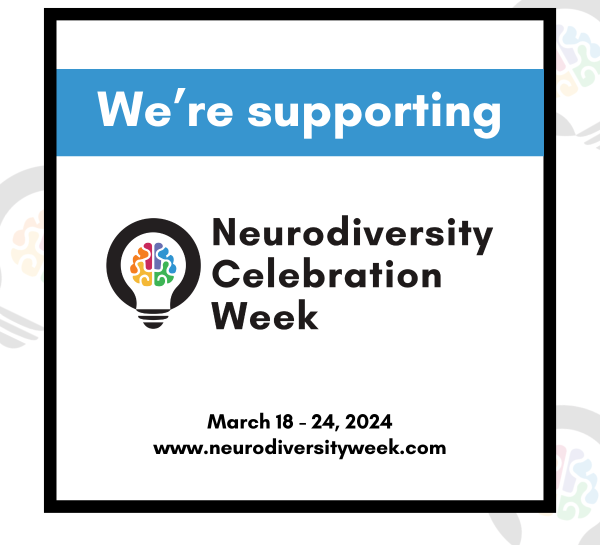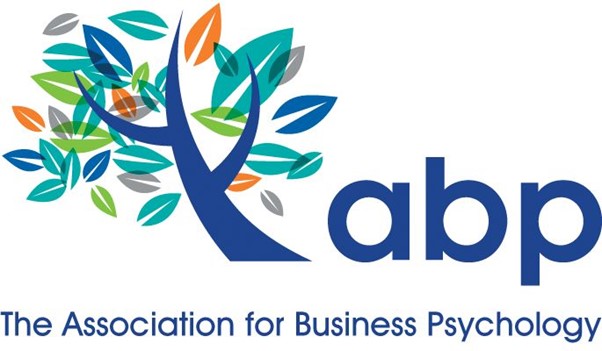Article based on webinar delivered October 2024 Author: Dr Rainer Kurz, Chief Psychologist, HUCAMA Analytics Ltd My 2024 Conference season was intensive preparing a dozen papers across 5 events including one at the ABP Conference in Denham. The enthusiastic folks at the ABP encouraged us…

Authored by ABP’s Member Retention Lead – Liz Mulhall-Brewer
March 18th to 24th marks Neurodiversity Celebration Week. A time when schools, universities and workplaces come together to celebrate and acknowledge the strengths and talents of neurodivergent people as well as challenging stereotypes and misconceptions. Neurodiversity Celebration Week was founded by Siena Castellon in 2018 when she was 16. Sienna, a neurodiversity advocate and author who is autistic, dyslexic, dyspraxic and has ADHD was motivated to balance the narrative around neurodiversity. She noticed the main focus of neurodiversity awareness was on challenges experienced, she thought it was important to also acknowledge the talents and strengths that neurodivergent people bring to education and workplaces.
Progressing the agenda
Since its inception in 2018, momentum has been building year on year, and in 2022 Siena partnered with Psychological Consultants and neurodiversity experts Lexxic who play a key role in running the yearly campaigns and the successful expansion into workplaces. During Neurodiversity Celebration Week, Lexxic are running 24 free events covering a range of topics which you can register to attend here: https://www.neurodiversityweek.com/events
For some, Neurodiversity Celebration Week is a great time to launch new initiatives, start conversations about neuroinclusion and commit to taking action. For those who don’t have anything planned, the good news is you don’t need to wait until next year to take proactive action to support and progress the neuroinclusion agenda! While awareness days and weeks can serve as catalysts and milestones, working to your own timeline is perfectly acceptable.
What do we mean by neuroinclusion?
Psychology Today define neuroinclusion as ”A workplace environment that is adaptable, flexible, and supportive to enable all employees to do their best work”. Neuroinclusion benefits all, by considering the optimal conditions required for everyone not just those who are neurodivergent. Considering communication, information processing, sensory and environmental needs, enabling highly productive work environments.
What steps can you take towards neuroinclusion?
At its core, neuroinclusion is about cultural change, shifting perspectives and ways of working towards a more flexible, open and accepting culture that celebrates and encourages diversity of thought and working styles. As with any culture change, leadership commitment is paramount, so having these conversations at the highest level of an organisation is a good place to start. Including neurodiversity in EDI and people strategies can ensure resources are allocated and commitment to progressing the agenda.
Starting small
Neuroinclusion like other EDI work is a journey and not a destination. Creating truly inclusive environments requires continuous learning, adaptation, and effort, rather than being achieved. With this in mind, starting small and doing things intentionally can contribute to positive change.
- Focus on strengths.
By focusing on strengths particularly within the context of neurodivergence, this can help shift the narrative away from deficits and difficulties and onto talents and skills. Whist not dismissing the challenges faced and accommodating where necessary, strengths should be front and centre and be considered when hiring, developing and promoting. Strengths facilitate our best work, engagement, wellbeing benefits, flow states and ultimately performance.
- Person centred support
When considering support for employees it’s important to focus on the person and not the diagnosis. This isn’t to suggest you discount the diagnosis but focus on individual needs rather than stereotypes that can be inferred from a diagnosis. Research by Birkbeck’s Centre for Neurodiversity at Work (https://eprints.bbk.ac.uk/id/eprint/50834/22/50834c.pdf) highlighted multiple neurotypes that respondents had with 52% identifying with more than one. Using neurodiversity experts for workplace needs assessments can help identify needs, trait overlaps and recommendations centred on the person with some providers focusing on strengths.
- Involve neurodivergent employees
There is a motto originating from the disability rights movement that’s commonly used within the neurodiversity advocacy space “Nothing About Us Without Us”. Actively engaging with neurodivergent employees can provide first hand feedback on their experiences and what’s most important. If you want to learn about neurodivergent experiences, listen to and believe neurodivergent narratives. Employee resource groups or working groups can help by feeding back and co-designing policies, training and programs of work but being mindful of the additional load this work can bring. Allocating a proportion of working hours to this work is recommended.
We would love to hear about the work you and your organisation are doing during neurodiversity celebration week and beyond. Let us know via our ABP LinkedIn page or by emailing: admin@theabp.org.uk.
Liz Mulhall-Brewer is a ABP Board Member and works as an Associate Coach for neurodiversity experts Genius Within and NATTC and specialises in neurodivergent wellbeing at work.



